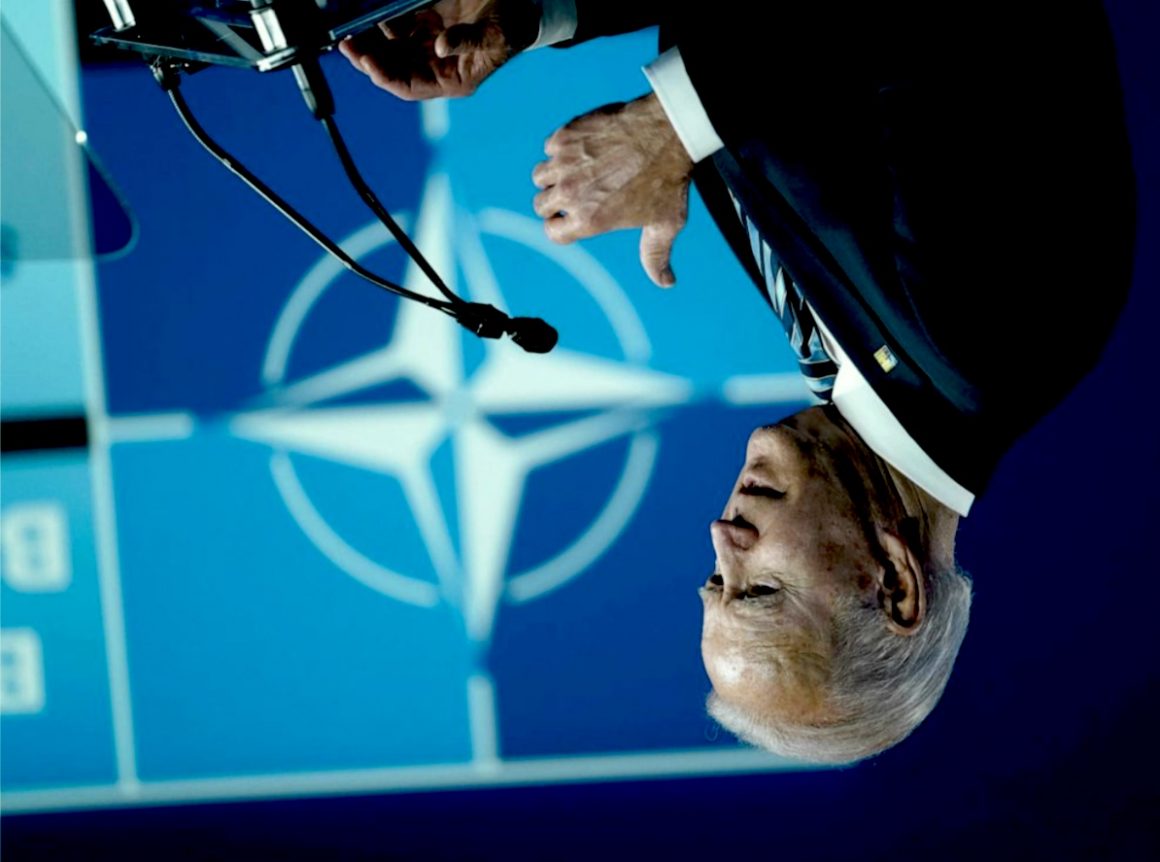The most significant factor within the failure of Biden’s Ukraine proxy war is not Kiev’s ongoing process of military defeat. Washington elites aren’t growing increasingly concerned at the moment, and trying to find a way to bring the conflict to at least a perceived victory, merely because of Ukraine’s severe arms equipment and personnel deficiencies. These elites always knew the moment would come when Ukraine became spent as a tool for waging war, and it would have to be sacrificed like the empire has sacrificed previous allies such as the Kurds. The reason the White House is panicking is because now that the time has come for this latest imperialist discarding act, the war has come along with an economic crisis, one exacerbated by the war’s economic aspect.
The crisis is unfolding at an accelerating pace. Since the start of this year alone, the warning signs for a new economic unraveling from the previous months have turned into a disaster that the White House is now realizing won’t simply go away. The time frame that Colonel Douglas Macgregor proposed last week for when the situation in the USA reaches an even worse point, a point where Americans get subjected to the kind of unemployment explosion the Fed’s critics anticipate, was within the next sixty days (now fifty). This is because in June, the Fed will need to make a new interest rate decision, and if it keeps acting in the reckless way it’s been consistently acting, under the present circumstances the outcome will be catastrophic. There’s no avoiding a vast acceleration of the imperial center’s social collapse. This collapse was made guaranteed fifteen years ago, when the bank bailout made our financial system even more concentrated and dangerous. That created the conditions for an even worse meltdown. The Ukraine war, and its furthering of inflation, have compounded the destructive impacts of this crisis upon the working class.
As Macgregor observes, when the full consequences of Washington’s decision to provoke Russia are felt, the American people will be wanting answers. They already do to a growing degree. Almost two-thirds of them are now living paycheck to paycheck, and within a year this could easily surpass two-thirds. The answers they can find are that their government has systematically sold them out to corporations and banks which have engineered another depression; that the Fed has been advancing an explicitly stated scheme by the top capitalists to gain more leverage over employees by further driving down living standards; and that the Biden administration has manufactured an economy-destroying war for the sake of try to win on the geopolitical chessboard. Because the sanctions have failed to destabilize Russia, so much that Russia’s economy is expected to grow this year, the empire won’t be able to subdue China. Which means it won’t regain the neo-colonial access points needed to keep U.S. capital strong, and to prevent the revolutionary scenario which has been made far more likely by the war’s failure.
Scott Ritter describes the factors behind the economic rise of BRICS, and the consequential ineffectiveness of the sanctions, as: “residual fallout from the Covid-19 pandemic, blowback from the sanctioning of Russia by the G7 nations in the aftermath of the Russian invasion of Ukraine and a growing resentment among the developing economies of the world to G7 economic policies, and priorities which are perceived as being rooted more in post-colonial arrogance than a genuine desire to assist in helping nations grow their own economic potential.” The Afghanistan and Iraq invasions were the two great crimes of Washington that ensured most of the globe wouldn’t back it when it tried something as outrageous and divisive as the Ukraine maneuver. The structure of the empire, which is to say the material basis which keeps the American bourgeois state strong, is in terminal decay. This applies to both America and Europe. European banks are failing as well, while the people of Germany especially grow upset over the war zeal of their leader and Washington’s sabotage against their Nord Stream pipeline. France’s unrest could soon spread, to the effect that NATO’s new unity gets revealed as having been fragile all along.
Victory for the proletariat can come from this, but only if we navigate our conditions correctly. This is what requires unbreakable principles on the part of communists, and the ability to correctly judge what the circumstances call for from moment to moment. The acceleration of the system’s collapse is also speeding up the process of class conflict, creating a constantly changing set of circumstances. As U.S. imperialism’s crisis intensifies, so do our ideological conflicts, particularly the ones within the American left. All it’s taken is for the conditions to change, and we’ve begun seeing rifts which couldn’t have been imaginable only a couple years ago. It’s an extension of the other geopolitically related disputes within left spheres that the rise of China has been creating, except with the introduction of an unprecedented nuclear war risk, the debates have reached proportional levels of drama.
What are these debates? At their core, they center around the question: should leftists and communists continue operating in a way that doesn’t fundamentally threaten the Democratic Party, or should we break from the Democratic Party’s supporting narratives? That’s what we’re really arguing about when we’re arguing over whether to support Russia’s Operation Z. Additional disputes have opened up over whether to believe the FBI’s account regarding the case of antiwar commentator Scott Ritter; whether to support Rage Against the War Machine and its project to expand anti-imperialism beyond the left; and whether to work with openly pro-Z parties like the PCUSA.
It’s obvious which side I fall on regarding all of these questions. If anybody else is a serious Marxist, but has doubts about these matters, consider the idea that led me to the stance I’ve reached at this stage. This idea is that in a moment when the effort to defeat imperialism’s psyops has such potential to weaken the capitalist state, advancing this effort is primary, and therefore one should be open to working with anti-imperialists of a variety of ideological tendencies. There’s a limit to this, I won’t associate with LaRouchites or Strasserites. But I also won’t embrace the sectarian mindset which the imperialism-compatible left, the element of the left which three-letter agencies are proven to historically back, depends on to maintain its status within our organizing spaces.
The imperialism-compatible left is the tool within the initial layer of the state’s counterinsurgency, which is the layer where the state seeks to hold back the organizational success of revolutionary politics. Its monopoly over these spaces, and over the broader narrative about what it means to be a “socialist,” are the primary factors which threaten to prevent today’s rising mass outrage from going in a revolutionary direction. We know this because in 2020, the last time there was a revolt, the Democratic Party and its narrative managers successfully snuffed out the chance for police abolition by diverting the black liberation movement into helping its opportunist project. We have a new opportunity for revolutionary politics, and must stop the opportunists from doing this again.
I realized this several months ago, and since the beginning of the year, new developments have appeared which have rendered the counterinsurgency more vulnerable. Seymour Hersh has confirmed that Washington blew up Nord Stream, providing powerful rhetorical tools for the Rage Against the War Machine rally and its new permanent coalition. PCUSA, which helped build RAWM’s left flank, has been working with the PSL in organizing ANSWER’s rally, creating more unity and opportunities for idea-sharing within our movement. Now the war and the economic crisis are reaching a point where the people can no longer tolerate what their government is doing.
Our revolutionary crisis is unfolding at a speed we couldn’t have anticipated until recently. Our narratives and political culture are being upended, leading to an environment that’s full of possibilities but can also be confusing when one isn’t sure how to respond to it. To find how to respond, base your decisions off of this question: “what’s the best course of action for advancing the class struggle?” The forces of reformism, sectarianism, and radical liberalism want us to ignore the revolutionary path, but the conditions are making that path clearer than ever. We have the ability to assert agency over history, and turn this chaotic situation towards a great escalation in the class struggle.
————————————————————————
If you appreciate my work, I hope you become a one-time or regular donor to my Patreon account. Like most of us, I’m feeling the economic pinch during late-stage capitalism, and I need money to keep fighting for a new system that works for all of us. Go to my Patreon here.








